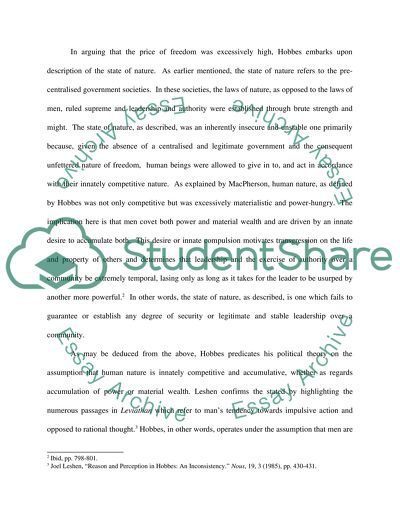Cite this document
(“Thomas Hobbes vs. John Locke/pro John Locke Essay”, n.d.)
Thomas Hobbes vs. John Locke/pro John Locke Essay. Retrieved from https://studentshare.org/miscellaneous/1509355-thomas-hobbes-vs-john-lockepro-john-locke
Thomas Hobbes vs. John Locke/pro John Locke Essay. Retrieved from https://studentshare.org/miscellaneous/1509355-thomas-hobbes-vs-john-lockepro-john-locke
(Thomas Hobbes Vs. John Locke/Pro John Locke Essay)
Thomas Hobbes Vs. John Locke/Pro John Locke Essay. https://studentshare.org/miscellaneous/1509355-thomas-hobbes-vs-john-lockepro-john-locke.
Thomas Hobbes Vs. John Locke/Pro John Locke Essay. https://studentshare.org/miscellaneous/1509355-thomas-hobbes-vs-john-lockepro-john-locke.
“Thomas Hobbes Vs. John Locke/Pro John Locke Essay”, n.d. https://studentshare.org/miscellaneous/1509355-thomas-hobbes-vs-john-lockepro-john-locke.


